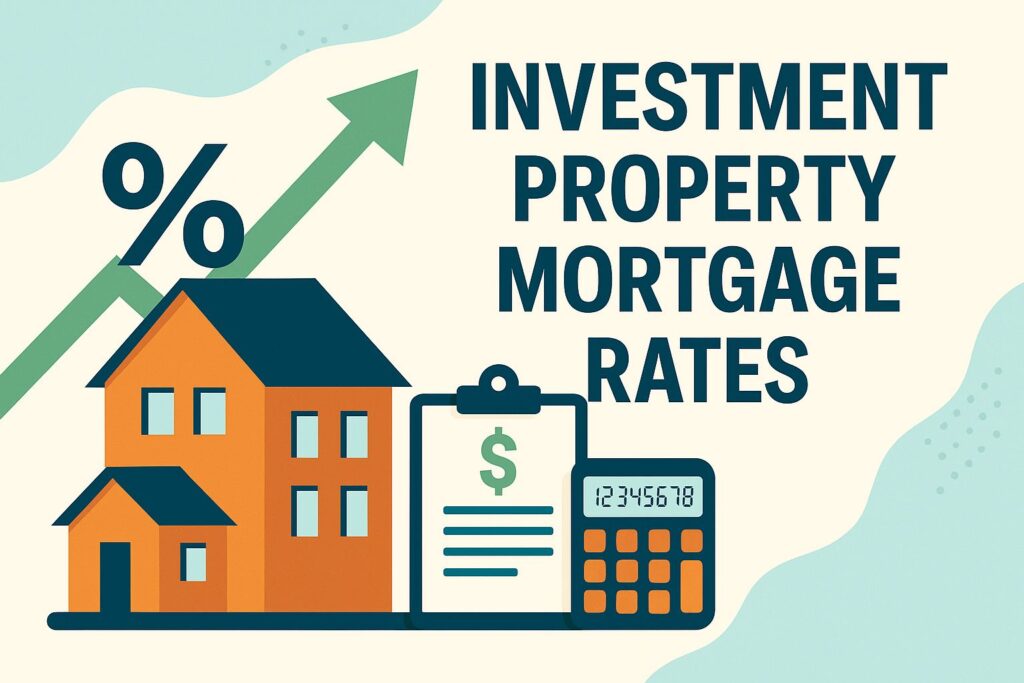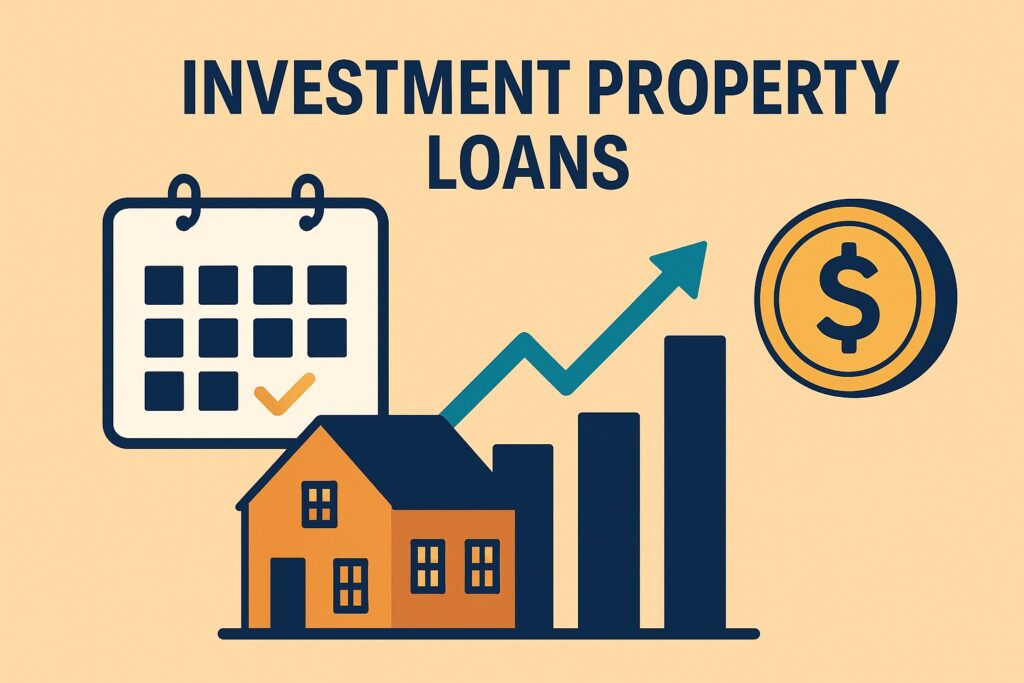Investment Property Loans Explained: Current Rates, Qualifications & Refinancing Tips
If you’re thinking about expanding your real estate portfolio or getting started with rental investments, navigating the world of investment property loans can feel overwhelming. From understanding investment loan rates to getting pre-approved for investment property mortgages, this guide will walk you through everything you need to know to make informed financial decisions and grow your investment potential.
Understanding Investment Property Mortgage Rates in 2025
Owning a rental property can generate passive income, diversify your portfolio, and provide long-term appreciation. But before you jump in, it’s important to understand how investment property mortgage rates differ from standard home loans and what lenders look for when financing a property that’s not your primary residence.

Comparing Investment Home Loan Rates vs Primary Mortgage Rates
A typical investment home loan rate will be higher than rates offered for a primary home mortgage. Why? Because investment properties carry more risk for lenders. These loans often require a larger down payment and stricter qualifications.
There are several types of rental property loans available depending on your strategy. Whether you’re flipping homes or building a rental empire, securing the right loan product is essential.
Top Financing Options for Rental Property Loans
One of the top questions investors ask is: What are the current investment property interest rates? As of mid-2025, average rates on investment property loan rates range from 7% to 8.5%, depending on creditworthiness, loan-to-value ratio, and type of loan. This is notably higher than traditional mortgage rates, so shopping around is key.
Websites like Bankrate and LendingTree track daily updates for investment property mortgage rates, which helps borrowers compare options and secure the best deal.
What Affects Investment Property Interest Rates?
If you’re looking to get a mortgage for rental property, you’ll find several loan structures that may fit your needs:
- Conventional loans: Best for long-term rentals with steady income.
- Portfolio loans: Good for investors with multiple properties.
- Commercial investment property loans: Ideal if the property generates business income or has 5+ units.
No matter the route, lenders will examine the property’s income potential, your reserves, and your credit history.
How to Qualify for a Mortgage for Rental Property
You might be wondering about current investment property mortgage rates or searching for investment property mortgage rates today. These terms are often searched by savvy investors monitoring market fluctuations. Remember, these rates can change weekly, so locking in a favorable rate quickly is smart.
Breaking Down Rental Property Mortgage Rates and Trends
Getting a home loan for investment property starts with documentation. Lenders want to see W2s, tax returns, and property income history if you’re already a landlord. Expect to put at least 15–25% down depending on the property type and your overall financial profile.
Some investors look at rental property interest rates as a make-or-break factor in choosing whether to move forward. Even a half-percent change in rate can impact your cash flow significantly over the life of the loan.
Pre-Qualification vs Pre-Approval: What You Need to Know
Before shopping for your next rental, you’ll want to prequalify for investment property mortgage options. This gives you a ballpark loan amount and shows real estate agents you’re a serious buyer.
The more official next step is investment property mortgage pre approval, which requires underwriting and supporting documents. You’ll often hear terms like pre approval investment property and investment property loan pre approval used interchangeably.
What’s the difference? Prequalification is a quick estimate based on self-reported numbers, while pre-approval is a lender’s verified commitment.
How to Get a Mortgage for an Investment Property
If you’re unsure how to get a mortgage for an investment property, it’s helpful to speak with a mortgage advisor or broker who specializes in investment loans. They’ll walk you through the underwriting process, property appraisals, and rate lock options.
For serious investors asking how to get pre approved for an investment property, prepare for a deeper dive into your finances, including existing debts, credit score, and your current property portfolio.
Refinance Options: Turning Your Home into an Investment
Another common strategy is to refinance primary residence to investment property. This allows you to convert your current home into a rental while pulling equity to finance a new purchase. Not only does this build your portfolio, but it also helps maximize your returns by leveraging existing assets.
Qualifying for Investment Property Mortgages
The requirements for qualifying for investment property mortgage products vary by lender but usually include:
- 680+ credit score
- 15–25% down payment
- Debt-to-income ratio below 45%
- Property income potential or lease agreement in place

Getting Pre-Approved: Set Yourself Apart from the Competition
In today’s competitive market, having a rental property pre approval letter can give you a major advantage. Sellers are more likely to accept your offer when they know financing is already underway. This applies to both individual homes and multi-unit dwellings.
In some cases, lenders have special programs with low rates for those who meet investment property mortgage pre approval requirements — especially if you’re already an experienced landlord.
Final Thoughts
Securing the right financing is crucial to the success of your real estate investment strategy. Whether you’re looking to expand your portfolio, refinance your home, or simply compare investment property loan rates, knowledge is your best asset.
Use this guide as a reference when speaking with lenders, brokers, or real estate professionals. The more informed you are about investment property loans, the more strategic and profitable your decisions will be.



